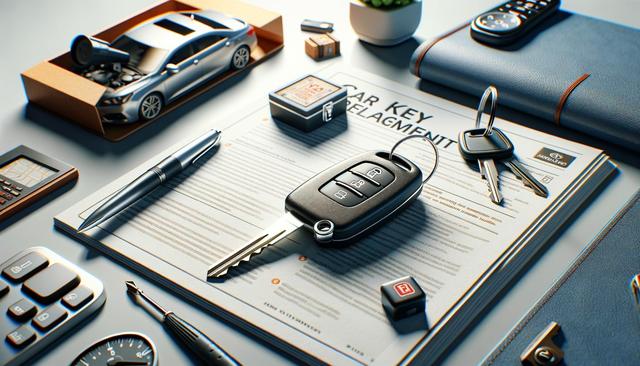Understanding the Types of Car Keys
Before seeking a replacement, it’s important to understand the type of car key you have. Over the years, automobile keys have evolved from simple metal designs to complex electronic systems. The type of key being replaced will influence the cost, time, and method of replacement. Common types of car keys include:
- Traditional mechanical keys
- Transponder keys with embedded chips
- Remote key fobs
- Smart keys with keyless entry/start systems
Each type requires a different approach for duplication or replacement. For instance, while a traditional mechanical key can be copied at many hardware stores, a smart key usually demands specialized equipment and programming. Knowing your key type is the first step in finding a suitable replacement solution.
When to Replace Your Car Key
There are several situations where replacing a car key becomes necessary. Obvious reasons include loss or theft, but there are other circumstances that may warrant a replacement. These include:
- Damaged or broken key blade or casing
- Malfunctioning electronic components
- Battery depletion in smart keys or remotes
- Security concerns after vehicle break-ins or shared access
Timely replacement can prevent being stranded or locked out of your car. In cases where the key is malfunctioning, it may be more efficient to replace rather than repair, especially for electronic keys. It’s also wise to consider a spare key, so you’re not caught off guard in an emergency.
Where to Get a Replacement Key
There are multiple avenues for getting a car key replacement, and the choice depends on convenience, cost, and the type of key. Some of the most common options include:
- Authorized car dealerships
- Automotive locksmiths
- Online key replacement services
- Specialty auto parts stores
Dealerships are often seen as a reliable source, especially for newer vehicles with advanced key systems, but they can be more expensive and time-consuming. Automotive locksmiths, on the other hand, often provide more competitive pricing and quicker turnaround times. Online services may offer convenience, but they require careful verification to ensure compatibility and authenticity.
Cost Factors in Car Key Replacement
The cost of replacing a car key can vary widely, ranging from modest to significant, depending on several variables. These include:
- Key type and complexity
- Whether programming is needed
- Service provider (dealership vs. locksmith)
- Vehicle make and model
For example, a basic mechanical key might cost only a small amount to duplicate, while a smart key with integrated security features can cost considerably more. Additional fees may apply for emergency services, mobile locksmith visits, or key fob programming tools. Comparing quotes and understanding what is included in the replacement service can help manage expenses efficiently.
Tips for Preventing Future Key Issues
While replacing a car key is sometimes unavoidable, there are preventive measures that can reduce the risk of key-related problems in the future. Here are a few practical tips:
- Always have a spare key stored in a secure, accessible location
- Use a durable keychain to protect your key from physical damage
- Replace remote or smart key batteries regularly
- Avoid exposing keys to moisture or extreme temperatures
- Label and track your keys, especially if shared among multiple users
Staying proactive can save both time and money. Additionally, consider using key tracking devices that sync with smartphones, which can help locate misplaced keys quickly. These tools are especially useful for smart keys or fobs, which are more susceptible to being lost due to their compact design.
Conclusion: Choosing the Right Car Key Replacement Path
Finding the right solution for car key replacement depends on your specific needs, key type, and budget. Whether you’re dealing with a lost key, a malfunctioning remote, or simply want a backup, understanding your options will help you make informed decisions. Taking preventive steps can also minimize future inconveniences. By being prepared and aware, you can navigate the process smoothly and ensure continued access to your vehicle without unnecessary stress.


